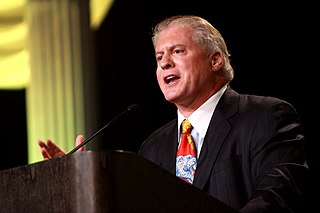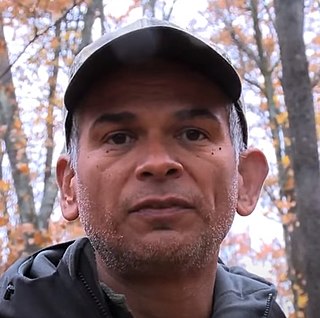A Quote by Michael Sandel
My main quarrel with liberalism is not that liberalism places great emphasis on individual rights - I believe rights are very important and need to be respected. The issue is whether it is possible to define and justify our rights without taking a stand on the moral and even sometimes religious convictions that citizens bring to public life.
Related Quotes
Abortion is a states' rights issue. Education is a states' right issue. Medicinal marijuana is a states' rights issue. Gay marraige is a states' rights issue. Assisted suicide- like Terri Schiavo- is a states' rights issue. Come to think of it, almost every issue is a states' rights issue. Let's get the federal government out of our lives.
I believe all Americans are born with certain inalienable rights. As a child of God, I believe my rights are not derived from the constitution. My rights are not derived from any government. My rights are not denied by any majority. My rights are because I exist. They were given to me and each of my fellow citizens by our creator, and they represent the essence of human dignity.
The Declaration of Independence was to set forth the moral justification of a rebellion against a long-recognized political tradition - the divine right of kings. At issue was the fundamental question of whether men's rights were God-given or whether these rights were to be dispensed by governments to their subjects. This document proclaimed that all men have certain inalienable rights. In other words, these rights came from God.
There is no Constitutional issue here. The command of the Constitution is plain. There is no moral issue. It is wrong - deadly wrong - to deny any of your fellow Americans the right to vote in this country. There is no issue of States' rights or National rights. There is only the struggle for human rights.
Any group or "collective," large or small, is only a number of individuals. A group can have no rights other than the rights of its individual members. In a free society, the "rights" of any group are derived from the rights of its members through their voluntary individual choice and contractual agreement, and are merely the application of these individual rights to a specific undertaking... A group, as such, has no rights.
My own sense as an American is that we have begun to experience the disadvantages of framing virtually all moral issues in terms of individual rights. American history has consisted of swings back and forth between rights talk on the one hand and talk of duties, responsibilities, and the common good on the other hand. Recent decades have seen a big swing toward rights, and conceived in very individualistic terms, which hasn't always been the case even with rights.
I would not have suffered my name to have been used by my friends on anywise as President of the United States, or candidate for that office, if I and my friends could have had the privilege of enjoying our religious and civil rights as American citizens, even those rights which the Constitution guarantees unto all her citizens alike.
At the end of the day, these are issues that need to be discussed: femicides, among other things - immigrant rights, women's' rights, indigenous people's rights, animal rights, Mother Earth's rights. If we don't talk about these topics, then we have no place in democracy. It won't exist. Democracy isn't just voting; it's relegating your rights.








































